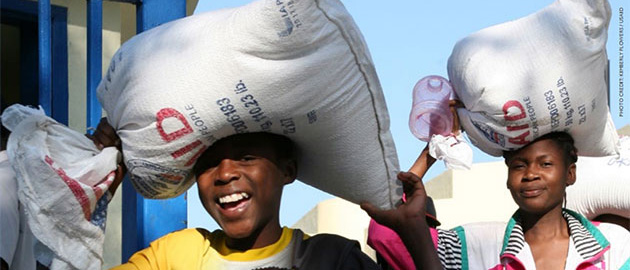
Regular monitoring and evaluation (M&E) is vital to the success of Food for Peace’s (FFP) development food security activities (DFSAs). To support DFSA M&E efforts, FANTA and FFP deliver M&E workshops at the start of new DFSAs. From January 22–25, 2018, FANTA and FFP jointly held an M&E workshop in Kampala, Uganda, for staff of new DFSAs awarded to Catholic Relief Services and Mercy Corps and their subgrantees. The five-day workshop provided technical assistance to familiarize these private voluntary organizations with FFP M&E approaches and requirements and finalize their theories of change and LogFrames, thereby strengthening activity effectiveness and accountability.
0. Opening
1. FFP M&E and Reporting Requirements
- FFP Monitoring, Evaluation, and Reporting Requirements
- Summary of FFP M&E Requirements–Schedule of Deliverables and Timelines
2. Theory of Change
3. M&E Plan
4. Logframe
- LogFrames
- Activity 1. LogFrames: Key Definitions
- LogFrames Activity 2: Key Concepts to Strengthen Your LogFrame
- LogFrame Template
- LogFrame Description Definitions
- LogFrame Checklist
- Technical Note: The Logical Framework
5. IPTT
- Indicator Performance Tracking Table (IPTT)
- Activity 1. Key M&E Terms for FFP Projects
- Indicator Performance Tracking Table Checklist
- Sources of Standard International Indicators
- IPTT Template
- IPTT Guidance
6. MIS Considerations
7. Sustainability
8. Annual Monitoring Indicators
- FFP Annual Monitoring Indicators
- Activity 1: FFP Indicators for Development Food Security Activities
- Activity 2. Discuss Annual Monitoring Data Collection Methods
9. Gender Integration
10. Environmental Considerations
- Integrating Environmental Requirements Into the M&E Plan
- FFP Factsheet: Integrating Climate and Environment Into M&E Systems


